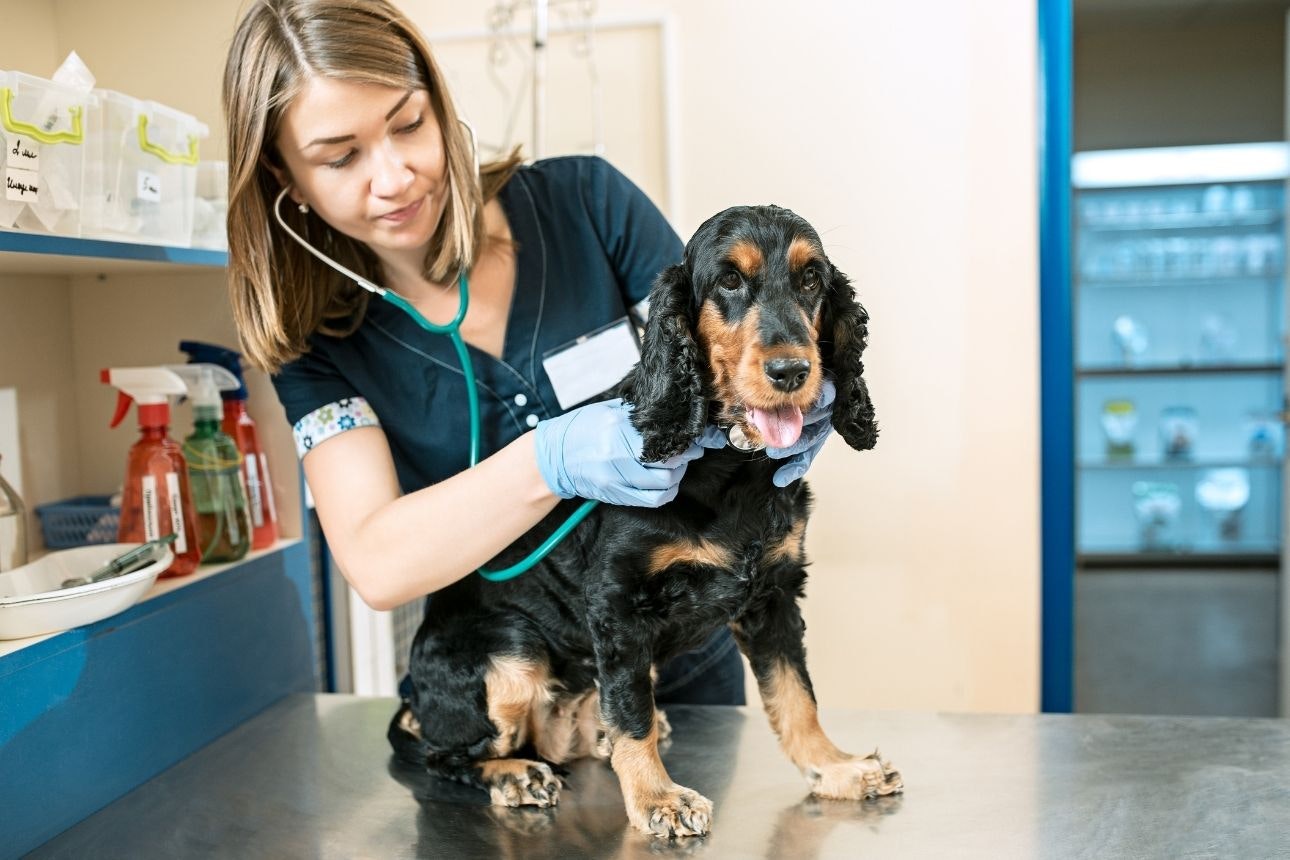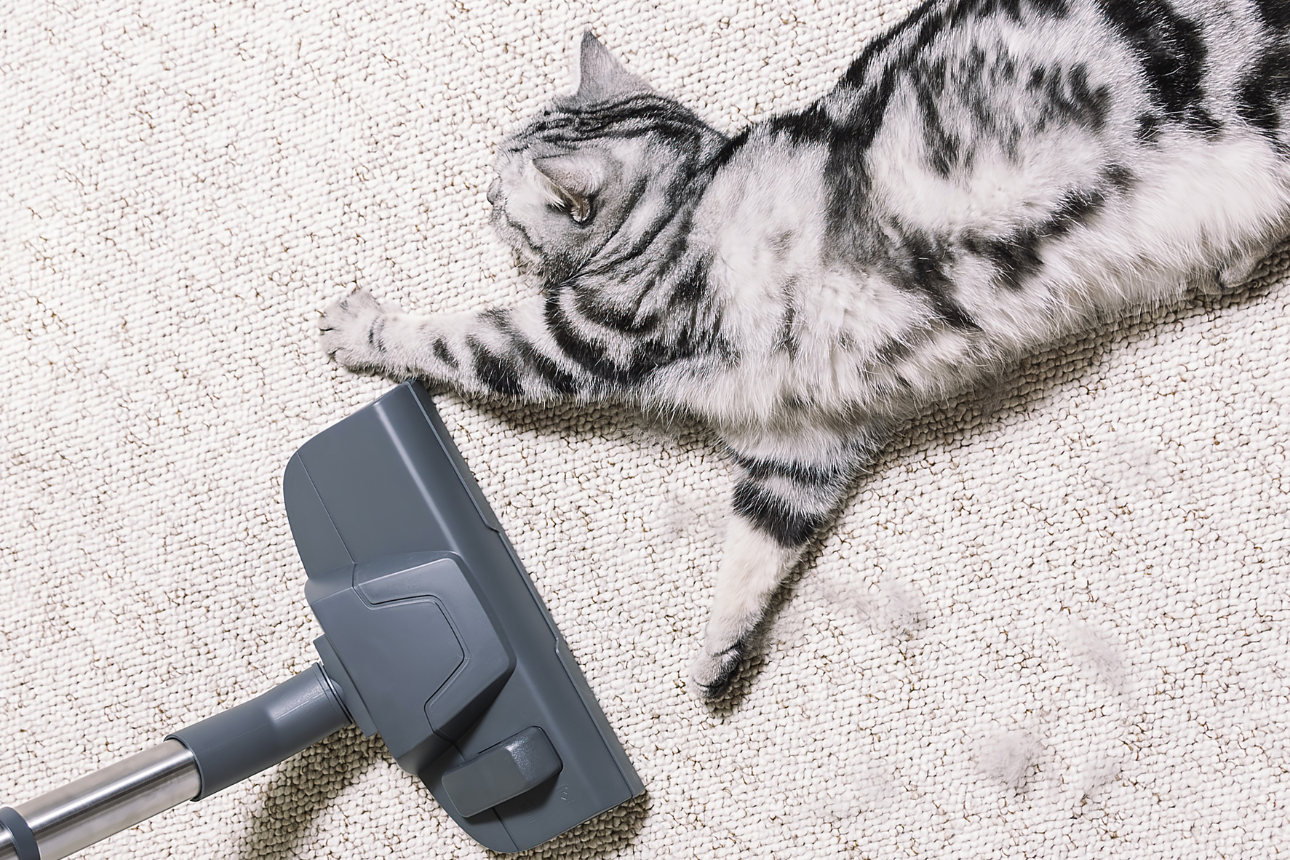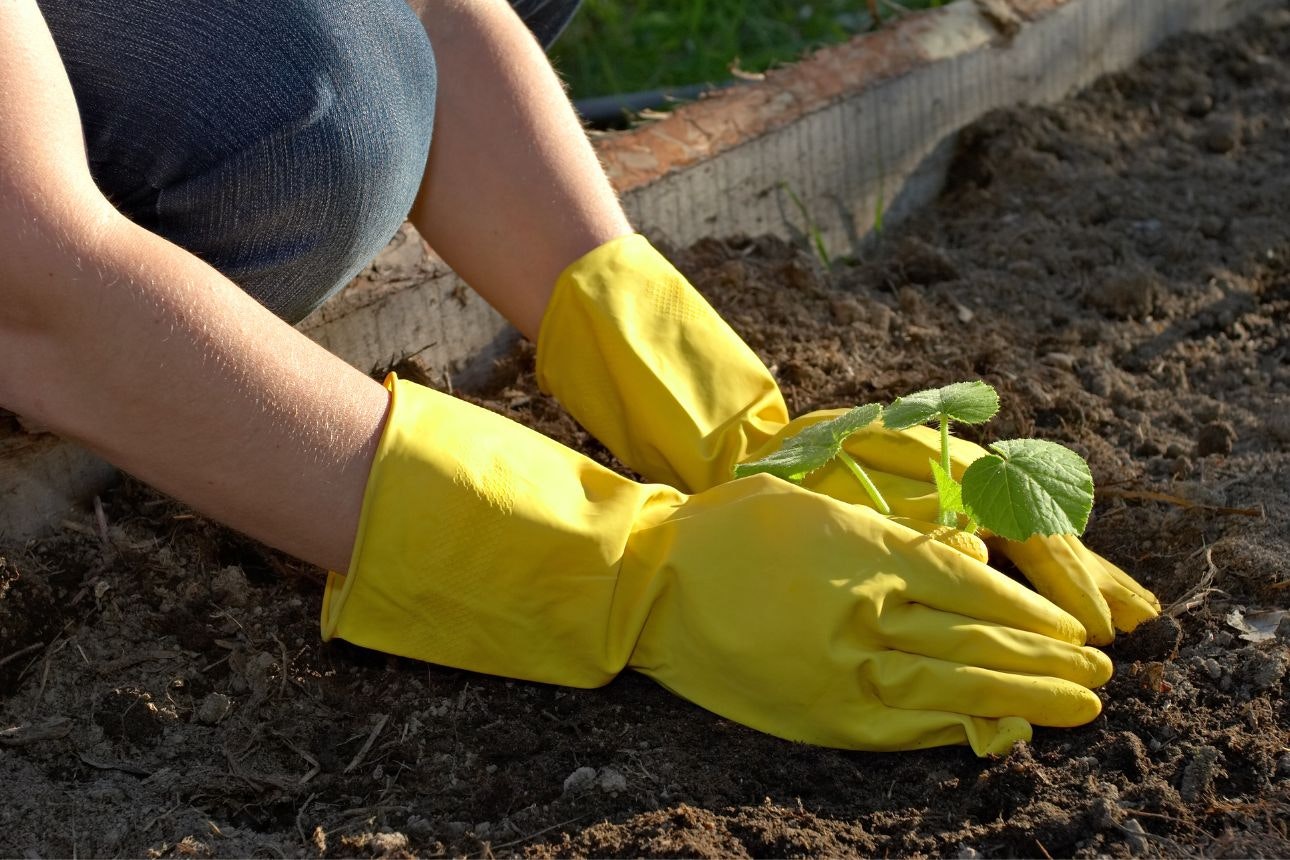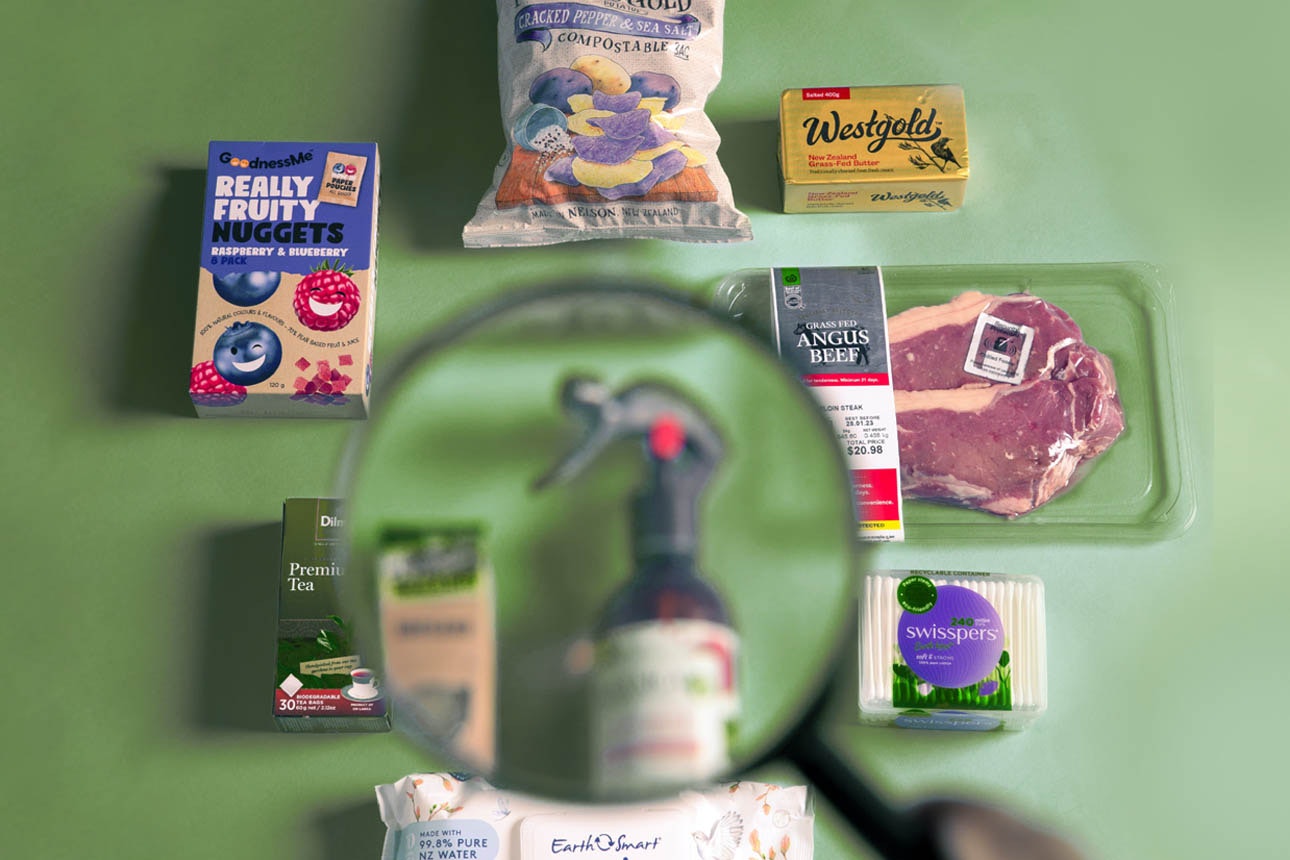
By Rebecca Styles
Research Lead | Hautū Rangahau
As a dog owner, it would be nice to think I could choose a “green” poo bag to pick up after my pet. On the shelf of my local supermarket, I came across Vitapet Eco Doggie Doo Bags. The packaging claimed the bags were “compostable” and “a more sustainable alternative”.
The Yours Droolly brand also claimed to be commercially and home compostable, while Kazoo is home compostable and suggested the bags would break down in regular rubbish.
Yet a closer look behind these claims shows compostable dog poo bags aren’t necessarily an “eco” option.
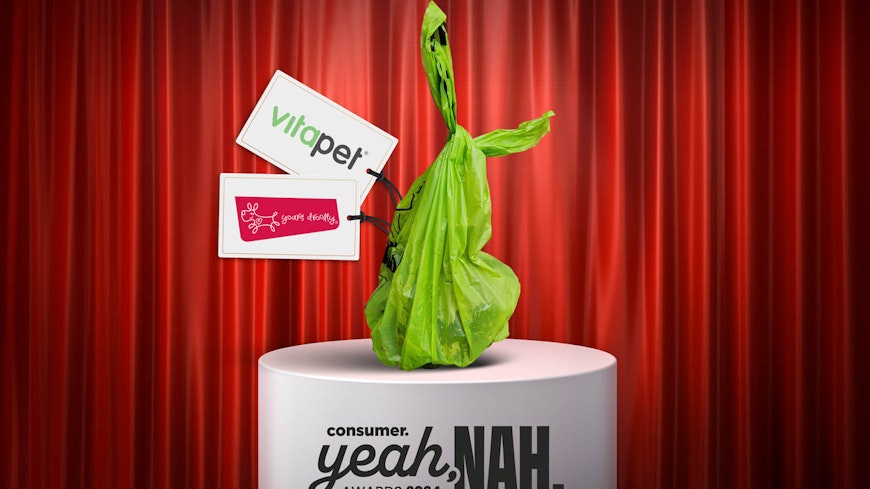

Yeah, Nah Awards
Our second-ever Yeah, Nah Awards highlight the worst of the worst in business to pressure poor-performing companies to up their game.
Compostable: yeah, nah
The problem is that while the Vitapet and Yours Droolly poo bags (both brands of MasterPet) are technically home and industrially compostable, it’s far more likely they’ll end up in landfill.
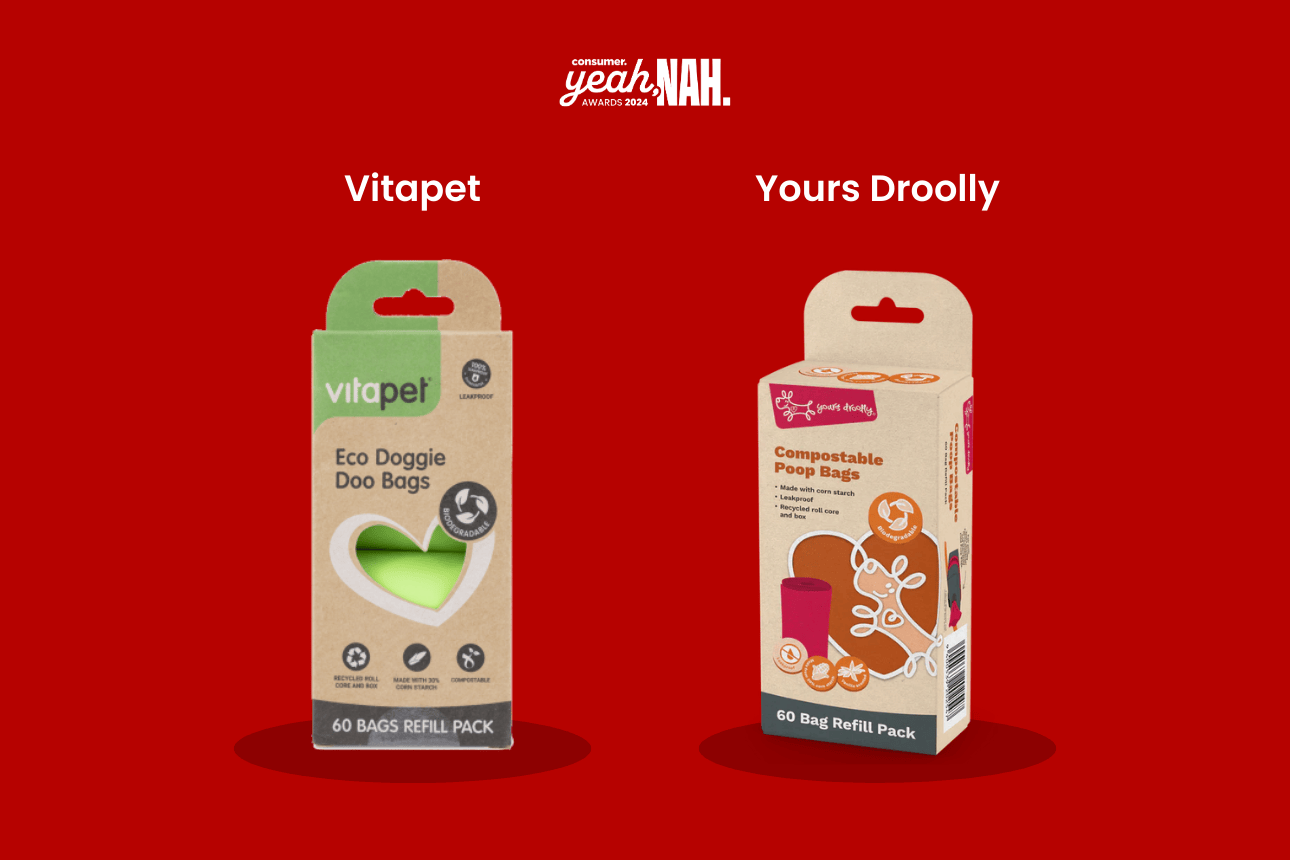
For a start, there are limited industrial composting facilities in Aotearoa, and even if you live close to a facility, it won’t take dog poo.
Leeana Tamati from WasteMINZ, a membership organisation focused on waste and the circular economy, said industrial composters in Aotearoa are consented to process food-related compostable packing only.
“Therefore, these dog poo bags will need to go to landfill,” Tamati said.
She added that making a claim of being industrially compostable when there is a lack of facilities is potentially misleading.
“Manufacturers and retailers should verify their product can actually be collected and composted across most of New Zealand before using such claims.”
For a plastic to be compostable, it has to be tested in a lab to show it can break down within a particular timeframe and state what environment it breaks down in. Generally, if a plastic has been tested and certified as compostable, it is also biodegradable.
While some plastics are compostable, there are still risks for the environment if they’re not disposed of properly.
“The bags are a type of plastic and if littered they can pose a threat to marine and river life as they won’t necessarily break down quickly in water.”
They can also break down into microplastics and produce methane in landfill.
There is also a popular misconception that industrial or home compostable plastics break down quicker in landfill, according to a Ministry for the Environment report. Unfortunately, this isn’t the case.
This misconception isn’t helped by the Kazoo brand of bags stating on the pack: “Simply compost them at home, or discard with regular rubbish. They will break down to organic matter, just like the poop.”
Compostable products are designed to breakdown in specific conditions. If they aren’t exposed to those conditions, or are littered, “they can last a very long time without degrading,” the Ministry for the Environment report states.
We asked Kazoo to back up its claim, but we didn’t hear back from them before publication.
If you did want to compost the bags at home, you would need a separate compost pile that isn’t used on any food crops. This is explained on the packs of the Vitapet and Yours Droolly packs. Or, you could buy a pet poo compost system.
When I asked Masterpet if it knew how many dog owners did compost the bags at home, it said it didn’t have any available data.
A 2023 Australian report – Examining sustainability claims of bioplastics – found that there is no benefit to a compostable product if it isn’t composted.
The authors of the report asked industry experts whether poo bags made of compostable plastics had an environmental benefit over conventional plastics. They said the bags didn’t, because they would probably end up in landfill.
‘A more sustainable alternative’
Alongside its composability claims, Vitapet says its poo bags are more sustainable than an oil-based plastic bag because they’re made of 30% cornstarch.
The Yours Droolly and Kazoo bags also contain cornstarch.
While cornstarch is a renewable resource, producing plastics from plants isn’t without environmental impacts. Growing plants for plastics is likely to involve water and agricultural chemicals. The plants also compete with food crops for land space.
It’s also important to note that although 30% of the bags are made from plants, the rest is likely made from fossil fuels.
We think any single-use plastic bag that is destined to end up in landfill is never going to be sustainable, regardless of what it’s made of.
Can you avoid using dog poo bags?
If I just left my pooch’s dog poo on the footpath, it would enrage my local Facebook community page!
But Leeana Tamati said there is another poo-scoop option aside from using a single-use plastic bag.
She suggested collecting bread bags, frozen vegetable bags, or small paper bags and using those as poo bags. By doing so, you’re getting another use out of a single-use bag that would otherwise be heading to the tip.
Alternatively, you could fork out for a home dog poo compost system.

Help stop greenwashing in Aotearoa
We need your help to call out dodgy 'green’ claims.
